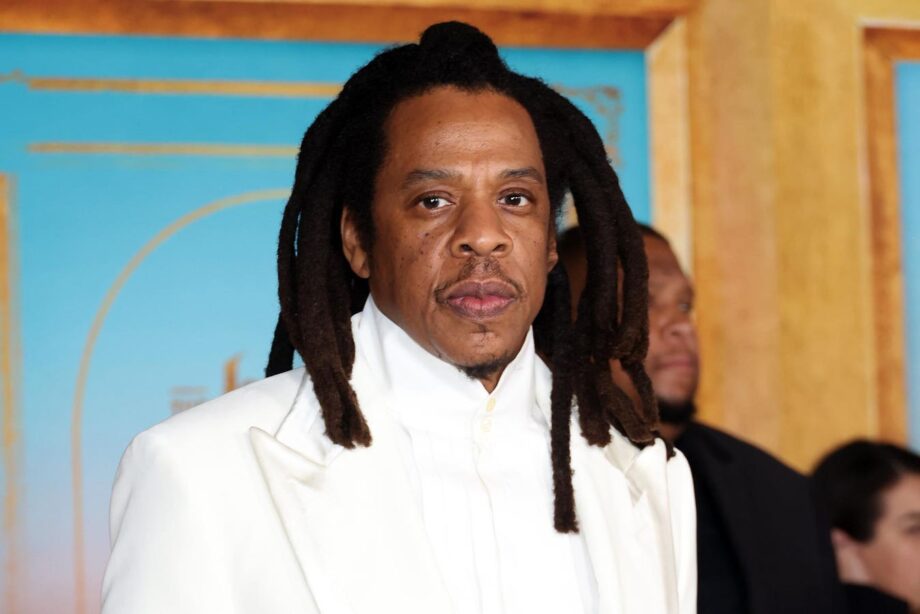LOS ANGELES, CALIFORNIA – JANUARY 05: Jay-Z attends the Los Angeles premiere of Sony Pictures’ “The … [+]
WireImage
Jay-Z became the second recipient of the Dr. Dre Global Impact Award at the 2024 Grammy Awards on Sunday. Presented by the Recording Academy and the Black Music Collective, the 24-time Grammy award-winning rap legend was heralded for his groundbreaking achievements in hip-hop culture.
During his acceptance speech, admitting he was “nervous,” Jay-Z vocalized his stance of truth regarding the consideration of hip-hop and Black musicians by the Recording Academy and cited Beyoncé as a prime example.
“I don’t want to embarrass this young lady but she has more Grammys than everyone and never won album of the year,” Jay-Z said. “So even by your own metrics, that doesn’t work.”
Over the span over her near three decade musical career, Beyoncé won the prestigious award 32 times out of the 88 nominations she’s collected. For the Album of the Year, she has been nominated four times as a solo artist: Renaissance (2023), Lemonande (2017), Beyoncé (2015) and I Am…Sasha Fierce (2010), but never won.
The historic Dr. Dre Impact Award speech was not the first time the “Where I’m From” emcee expressed his concerns with the Recording Academy.
At the 41st Annual Grammy Awards, Jay-Z garnered multiple nominations, including Best Rap Performance By A Duo Or Group for “Money Ain’t a Thang” by Jermaine Dupri, Best Rap Solo Performance for “Hard Knock Life,” and Best Rap Album for his third studio album, Vol. 2…Hard Knock Life. With the greatest humility, he went on to boycott the music award show after acknowledging the overlooked performance of his fellow in rap DMX.
In May 1998, DMX released his debut album, It’s Dark and Hell Is Hot which debuted at number one on the Billboard 200. In December that same year, he released his second solo album, Flesh of My Flesh, Blood of My Blood which also debuted at number one on the Billboard 200 chart.
Vol. 2…Hard Knock Life also debuted at number one on the Billboard 200, heightening the Brooklyn rapper’s mainstream appeal. Despite this success, as a hip-hop purist, Jay-Z felt it was unfair that DMX was absent from Grammy considerations.
With his Grammy award-winning daughter, Blue Ivy Carter, by his side, Jay-Z shared this piece of history during his speech while also acknowledging the pioneering efforts of DJ Jazzy Jeff and Will Smith.
In 1989, hip-hop was recognized at the 31st Annual Grammy Awards with the introduction of a new category for Best Rap Performance. The inaugural nominees included J. J. Fad for “Supersonic,” Salt-n-Pepa for “Push It,” Kool Moe Dee for “Wild Wild West,” LL Cool J for “Going Back to Cali,” and DJ Jazzy Jeff & the Fresh Prince for their hit song “Parents Just Don’t Understand.”
DJ Jazzy Jeff and Will Smith made history by becoming the first to win a Grammy in hip-hop culture, an event broadcast during the pre-televised ceremony. However, the winning duo, unhappy with the lack of exposure of the historic moment, boycotted the award show by not attending the televised ceremony.
“Our boycott was to open their eyes to rap music so next year some rap group will be able to perform on the Grammys and the award will be televised because the music is large enough and important enough to be on that show,” Smith told Entertainment Tonight in an 1989 interview. It was this moment that influenced Jay-Z’s six-year Grammys boycott in 1998.
LOS ANGELES, CA – JUNE 27: Rapper Jay-Z and singer Beyonce Knowles perform onstage at the 2006 BET … [+]
Getty Images
In 2004, Jay-Z returned to the Grammys when his girlfriend at the time (now wife), Beyoncé, was nominated for six Grammy awards. This included Best Rap/Sung Collaboration for their duet hit, “Crazy In Love.”
Six years ago at Clive Davis’ Pre-Grammy Gala at the Sheraton Times Square, while being honored with the 2018 Industry Icons Award, Jay-Z explained why he ended his boycott. “I actually boycotted the Grammys that year [1998],” he said. He added that his reason for returning to the award show was “when a beautiful young lady, whom I love dearly, had a solo album and it was her breakout — she was nominated. My first time coming back, six years later, [was] for the Crazy in Love album with the beautiful Miss Beyoncé.”
For the past 16 years, Jay-Z’s entertainment company Roc Nation has successfully developed an infrastructure that promotes and supports artists’ creative and financial control over their careers. The roster at Roc Nation is diverse, representing a wide range of genres and ethnicities. Notable Black artists including Megan The Stallion, Rihanna, Alicia Keys, Rapsody, J.Cole, Lil Uzi Vert, Benny the Butcher, Jadakiss, Moneybagg Yo and Jay Electronica are among those featured.
Jay-Z has strategically advocated for increased inclusion of Black artists, especially in the hip-hop genre by leveraging his position as an authority in the music industry to promote inclusivity. By acknowledging the significance of the Recording Academy and revisiting history, the multi-time Grammy award winner could potentially initiate a conscious effort towards such inclusion, especially in the aftermath of the 50th anniversary of hip-hop culture in the midst of Black History Month.
Jay-Z concluded his historic speech with a pivotal piece of advice for his contemporaries. “You got to keep showing up until they give you all those accolades you feel you deserve,” he said. “Until they call you chairman. Until they call you an genius. Until they call you the greatest of all time.”




